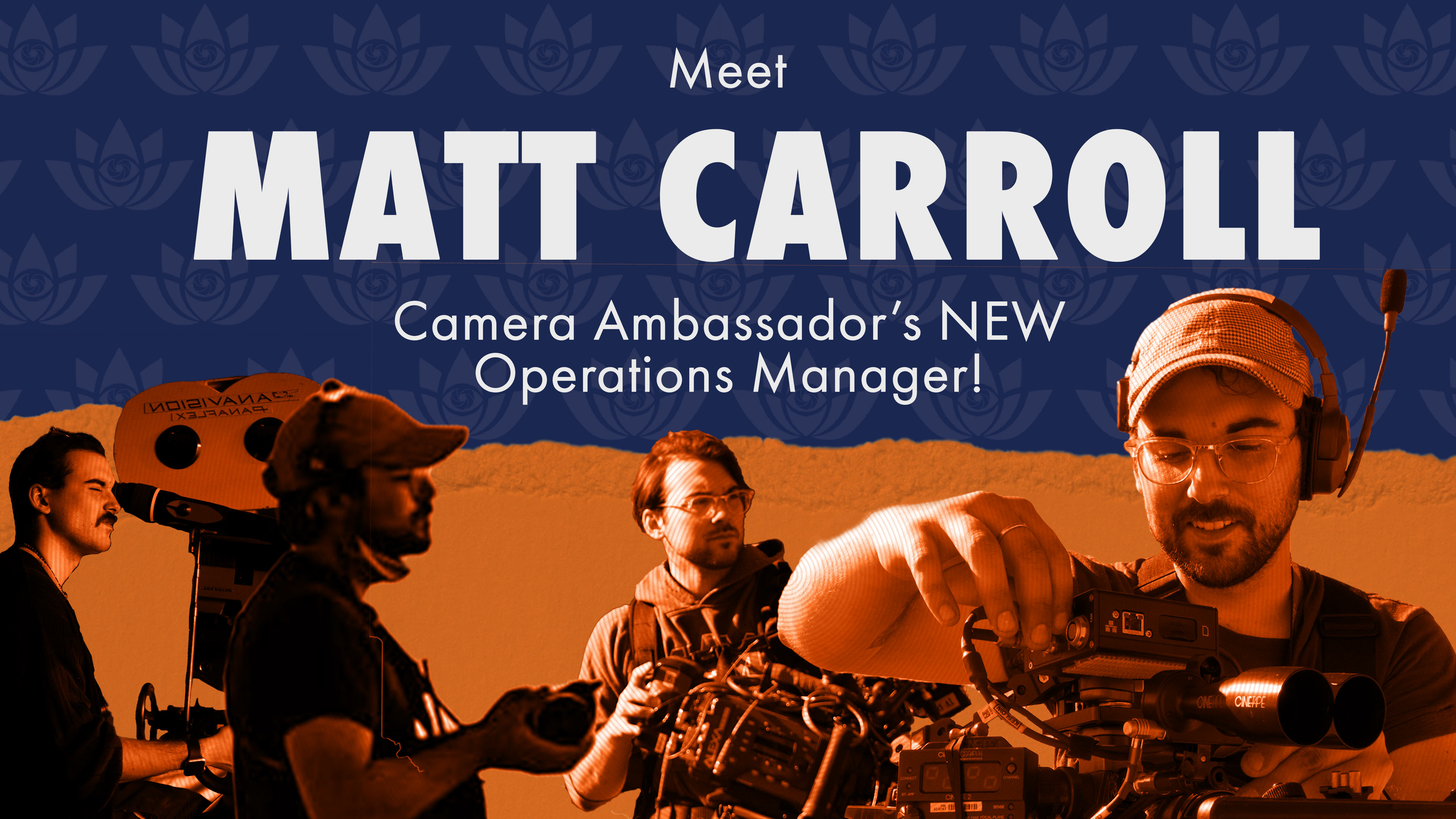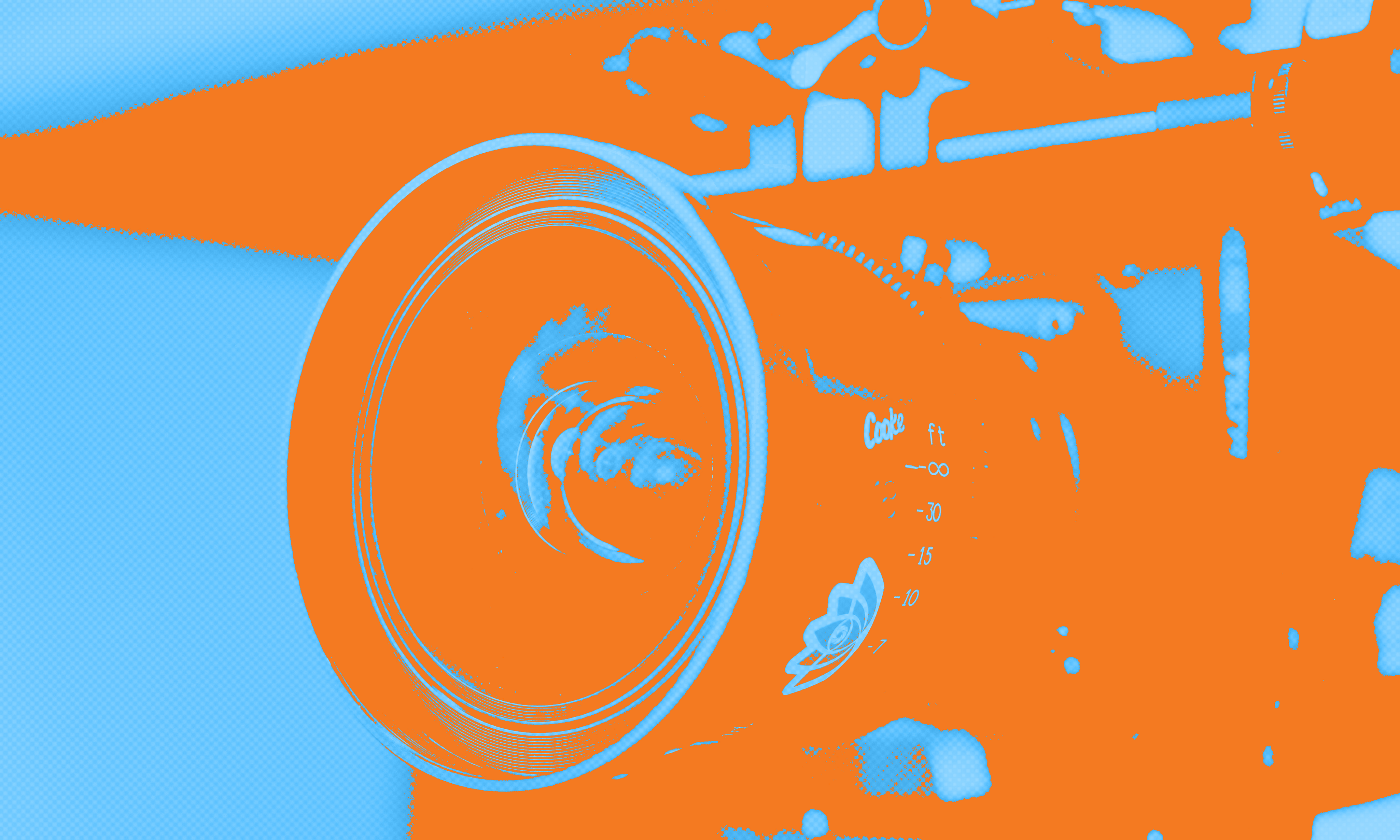Matt Carroll joins the team! As our Operations Manager, Matt will be a new friendly face around the shop. We caught up with our new friend and chatted about his interests and experiences. Enjoy!

CA: You studied Electrical Engineering at Miami University. Wait, what? Miami University is in… Oxford, Ohio?
MC: Yep.
CA: Not in Miami, Florida?
MC: No, there's the University of Miami and then there's Miami University, named after an Indigenous tribe. Miami University came first, like in 1809 or something. The school always makes a big deal about it.
CA: I see. Okay. Gotcha. So you worked in electrical engineering and at a co-op. What kind of skills do you feel like you've picked up in that journey that translated into film?
MC: Engineering, at its core, is all about problem-solving. It all boils down to problem-solving and just honing that skill into whatever specific discipline that you end up going into. My favorite thing to do was to be presented with a problem and try and design my way out of it.

CA: So, problem-solving is very much in your wheelhouse. But, it’s still not necessarily a clear jump in going from electrical engineering to film. Would you mind explaining how and why you made that transition?
MC: I was a junior at Miami. It wasn’t that I didn't enjoy what I was doing - the stuff I was doing was really cool and I had a lot of fun with it. But, at my co-op, I saw that all of the really talented engineers ended up being in management. I didn't really like that trajectory. I was also very heavily involved in theater until I graduated high school. So there was always some kind of artistic output for me and I didn't feel like I had that anymore. I had also, in that year, really gotten into photography and shooting video.
CA: Gotcha. So you then transferred to Columbia College Chicago. How was that?
MC: Oh, it was great. I loved it. I originally went to Columbia as a directing major. Cynthia Harrig, who runs advanced cameras at Columbia, told me that I should be a DP. She said understanding the visual language is the single most important thing that a director can do. And that if I wanted to be a director, the best way to do it is by filming stuff. So, she offered me a job working in advanced cameras. I was a TA, a rental technician, and studying cinematography.
CA: It seems like she was presenting cinematography as a means to the end of directing. Do you still feel like cinematography is like a means to an end or is cinematography what you want to do?
MC: She made the right call. Cinematography's exactly where I should have been.

CA: You graduate from Columbia College Chicago and you’re in the camera department for all these different projects. Are there any projects, in particular, that stand out to you?
MC: I think my favorite thing that I got to shoot was for Fender Guitars last year. It was with Jeff Tweedy - he's the frontman of Wilco. The production was just featuring one of their new guitars, but we got to go in their space and shoot him playing the guitar for a few hours and just chat. I loved the footage and I had a lot of creative freedom with it. That was a ton of fun.
CA: Yeah. Seems like a really great experience. So, you’re starting as Operations Manager at Camera Ambassador. What does that entail?
MC: I think in part it's to shift some responsibilities off of Erica's shoulders that maybe are things that she's been doing for a long time that the CEO / Founder of Camera Ambassador doesn't necessarily need to be doing all the time. Besides, the day-to-day operational things are the things that I love. So I think it works perfectly.

CA: Yeah. That makes sense. What do you like doing outside of work?
MC: I recently started getting into shooting tintypes, which is a ton of fun,
CA: What are tintypes?
MC: They are the earliest photographic process. It's a wet plate process. You're shooting onto a piece of aluminum or glass or plexiglass, but you actually coat it in a wet chemical-collodion mixture that binds to whatever the surface that you're shooting on. Then, you dip it in silver nitrate and the collodion acts as a binding agent to hold the silver nitrate onto whatever your substrate is that you're shooting onto.
CA: Okay. I'm gonna ask a possibly rude question. Are folks shooting tintypes just for the hipster vibes? Like, why experiment with wet plates?
MC: It’s technically the best archival medium. So, photographic paper degrades over time. But if you shoot onto a piece of aluminum and then you lacker it, it's good for - as far as we know - forever. We have Civil War photos that look just as good as the day they were shot. Meanwhile, some photographs from the seventies are already falling apart.
CA: Right. Well, you’re gonna have to show me some of them sometime! Matt, thank you for your time.
MC: Thank you.

Matt is a director of photography and camera operator with a background in narrative, documentary, and commercial filmmaking. Prior to his interest and pursuit of a career in the film industry, he studied Electrical Engineering, working briefly as a co-op electrical designer at Ethicon Endosurgery. When he's not at Camera Ambassador, he enjoys playing Magic, making ferrotypes and playing video games with his cat, Rhonda.



